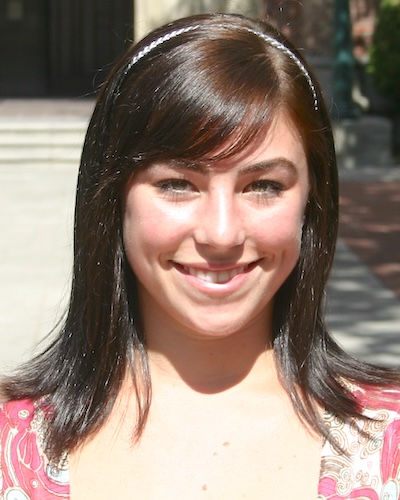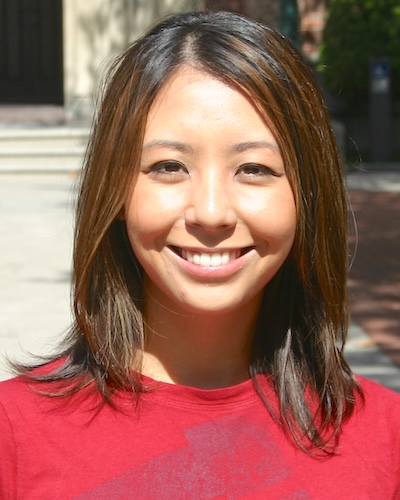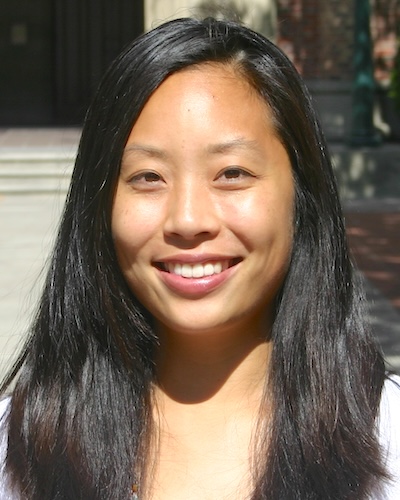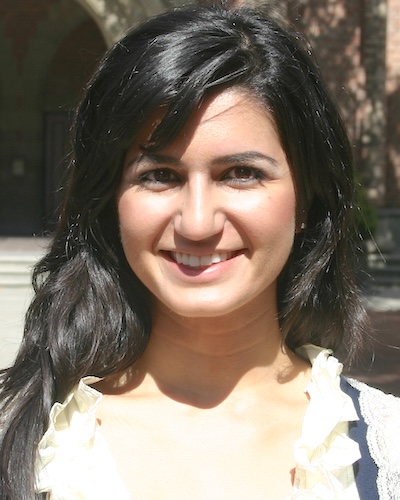Student Blog

Undecided and Excited! ⟩
January 23, 2011, by Austen
Beginnings and Endings What are OS/OT?
Here we are entering the third week of our last semester, and let me tell you, time has flown by! The end is in sight and the real world is fast approaching. That means the search for jobs is about to start. Everyday I ask myself what am I going to do? Where do I want to work? Where do I want to live? Usually, I would have answers to these questions, a plan for the next step. However, in this situation I do not.
All throughout college the unknown was scary to me. I needed a goal to work towards, a direction. I always had something to work towards, a major, a career in mind, etc. That is part of why I chose to pursue an occupational therapy degree. It was an end goal, a direct path, and a specific degree for a wonderful career I knew I would enjoy. I also thought I knew exactly what I wanted to do within OT: I wanted to work with kids. However, over these past 2 years, I have realized I am not so sure about that anymore. I am not sure what I want to do or what is coming next. That would typically make me very uneasy, being a Type A personality. Much to my surprise, I am not worried at all.
Perhaps part of my comfort with the unknown is knowing that occupational therapy provides lots of opportunities. Anywhere I move, there will be jobs. Any area I choose to pursue, there will be jobs. That is part of the beauty of OT! Also, if I take a job in an area I end up not enjoying, I can always switch to a new practice area and try something new. The challenge is going to be choosing where to start, what to try first. But the thought of not knowing where that is going to be is exciting to me. I get to enter a new adventure of my life, one that is finally unplanned. All of my life I have planned the future, the next step, and I am ready to be spontaneous for once and see where I end up. Luckily I know that wherever I end up in OT, I will be happy!
⋯

Second Week of the Spring Semester ⟩
January 18, 2011, by Carissa
Back to the second week of school for the last semester of the Master’s program! This semester I am taking 2 research courses, courses on Lifestyle Redesign, ergonomics, and motivational interviewing. This should be a good combination of skills that I really hope to put to good use in my future work. So far so good. I am pretty excited for the Lifestyle Redesign course, as we’ll get to help each other to form more healthy habits and routines. Last week, we were paired up in class, and we performed initial interviews on each other. In this class we’ll be able to help each other reach our goals we have made for our lives over the course of the semester. How fun is that? It will definitely be interesting! I have decided that I really need to work on organizing my time so I do not always end up procrastinating. I have a poor habit of worrying about a deadline coming up, not being able to fully enjoy everything else I’m doing because the deadline is in the back of my mind, but still waiting until almost the last minute to get things done. I am generally efficient during those last few hours before it is due, but I am sure there is a better way to go about doing things. I definitely could use a bit more balance in my life. Luckily, we are told that it is never too late to change those bad habits. We’ll see how it goes!
⋯

5 more months . . . ⟩
January 13, 2011, by Yao
My last Spring semester, I can’t believe it but I’m looking forward to my courses!
It’s the start of our last semester — I never thought that this time would actually come; I knew that it was coming but it was the ever-elusive last step until I enter the real world. Well it’s here. And oddly enough it promises to be one of my most diverse semesters and for once my choice of electives outweigh the number of core classes that I’ll be taking.
The first of my electives is “Sensory Integration,” which was introduced to me while volunteering at a local occupational therapy clinic whose main treatment revolved around sensory integration. After seeing how it positively affected the children were engaging in treatment at the clinic sparked my interest. Ever since my first pediatrics class I’ve been fascinated by the fact that your senses can be used as processors and organizers of information from the environment. As a result some people may have issues using their senses to organize their environment and as a result may react negatively to their environment. This is going to be a very interesting and intense course in addition to being a typical class it also counts as one of four parts of a SIPT al certification in sensory integration through USC and WPS for practitioners. One of the things that I’m most excited about regarding this course aside from the material is that both of our teachers actually studied with and knew A. Jean. Ayres (the woman who developed the sensory integration as it is used in occupational therapy, here at USC)!
My second elective is motivational interviewing. Motivational interviewing can be a way of gathering information from potential clients as well as a relationship-building tool. I decided to take this class because not only would it provide another type of training that would best benefit potential patients but also can be used in furthering my OT skill project that a classmate and I will be presenting on in April in Philadelphia. Especially in this day and age it is very important to gather as much information about the person and their lives throughout the process of rehabilitation to ensure the success and relevancy of treatment.
And the third and last elective that I will be taking is a course that is offered at Keck Hospital of USC. It’s another opportunity to gain hands on clinical experience with the hospital population, which is one that I’m highly interested in. And it’ll be the first elective and fieldwork that I’ll be able to wear scrubs! Believe it or not I haven’t worn a pair of scrubs as a part of fieldwork or as part of my elective courses.
It’s so sad that although this semester is going to be full of meaningful classes and plenty of group outings and projects, it will be the last semester that all my classmates and I will be together, in the same place, on similar schedules. Through my experience in graduate school I’ve began to learn the importance of enjoying the moment and not focusing too much on the future because you’ll lose sight of the present. Here’s to an amazingly awesome last Spring semester!
⋯

Endless Opportunities ⟩
January 11, 2011, by Austen
The band was back together again in Portland, Oregon. Over winter break, I went back home to reunite with my parents and my sister who had just returned from a semester in Capetown. It was as if we were never separated, just picked up where we left off as we always do. It is funny how that happens. As usual, my sister and I immediately jumped into the kitchen and started baking. Over the holidays, we went on a baking rampage. Luckily we were not the only ones eating our delicious creations, we baked for rescue missions, parties, friends, neighbors, and of course, our household. But I can honestly say I baked something new at least three times a week, and I looked forward to it each and every time. Some of my favorites and most successful endeavors were homemade granola, healthy(er) oatmeal chocolate peanut butter chip cookies, chocolate pecan toffee bars, german chocolate cake, lemon cupcakes with blueberry jam filling and vanilla frosting, and pumpkin ginger cookies with maple icing. Hungry? The list of baked goods that came out of my oven goes on and on. I guess you could say I love baking.
People tell me I should go to culinary school, become a food critic, or open a bakery, or all three. This all started when I returned from my semester abroad in Madrid with a new deep love of good food. I enjoy everything about it: reading recipes, grocery shopping, Food Network shows, cooking, indulging, and sharing the experience with others. Cooking and baking are now a large part of my life, and something I hope to continue doing. Since I find cooking and baking so enjoyable and meaningful, I would love to somehow incorporate it with my occupational therapy degree. Cooking classes for physically or mentally disabled? Baking as a social activity for developmentally delayed? Cooking classes for the college student? I often wonder if this is possible, but the more and more I talk about it with others, I realize that occupational therapy can be applied to and paired with any area of interest. Occupational therapy’s diverse and broad skill base can even serve as a valuable marketing tool to create a job that may lie outside the traditional medical/clinician role, whether that be related to cooking, nutrition, sports, music, dance, art, and so on. I once thought of occupational therapy as a very specific field, but I find now that occupational therapy can intertwine with many different aspects of life in ways we may not have explored before. On that note, I get more and more excited about all the opportunities awaiting me. So if you have any recommendations or ideas on how I can combine my love of food, cooking, and baking with occupational therapy, I am all ears!
Well, classes have begun and the semester is quickly underway. Here is to the New Year and my last semester. I think it will be a good one, a challenging one, and an exciting one. I look forward to it!
⋯

The Program is Flying By! ⟩
January 3, 2011, by Helen
Classes Getting Involved What are OS/OT?
It feels like just yesterday I was in the application process for the master’s program, anxious to learn Occupational Therapy and to one day become a therapist!
As 2010 just came to an end, I cannot believe that I only have six months left of the master’s program. In the last year and a half, it is amazing how much information we have covered. The first year flew by, providing us with a foundation of knowledge about pediatric OT, OT in the field of physical disabilities, geriatric OT, and OT in the fields of psychosocial/mental health. This second year, we have focused on learning how to build a therapeutic relationship with our clients, improving our listening skills, and understanding the theory behind our practice. By focusing on learning the history of where our profession has been, what the current state of our profession is, and where our profession is going, we are able to more creatively think about our own areas of interest. By better understanding what there is a need for in our profession, ideas of advocacy, research, and leadership are emphasized.
As a result of having learned so much about health care access, the history of our profession within the medical model, and the progression of current research, I have an increased interest in political advocacy and occupational therapy. Last year, I chose to get involved with an organization called CAHPSA (the California Health Professional Student Alliance). Currently, we are a week away from hosting Lobby Day in Sacramento. On January 9th and 10th, 200-500 health professional students will be traveling to Sacramento to meet with assembly members and senators to discuss how Health Care Reform will impact our personal professions.
One of my favorite aspects of our program has been the emphasis on understanding the theory behind our practice and the value for being aware of our professional past, present, and future. This value for the history of our profession is what has inspired me most to impact the future of occupational therapy practice.
⋯





